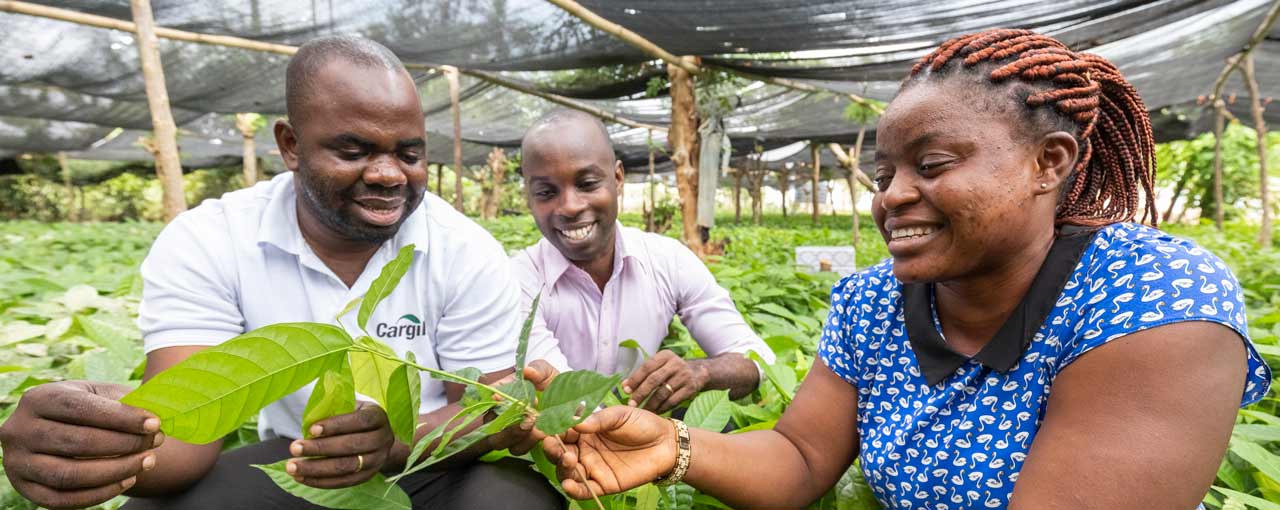Connected for more
From farmers to communities, we bring together the people who can help the cocoa sector thrive.
What does it mean to be truly connected? To us, a company at the heart of the cocoa supply chain, it means striving each day to bring together the people who can help the cocoa sector thrive.
It means partnering with cocoa farmers and cooperatives, so they can build resilient businesses, care for their families and protect natural resources. It means working with cocoa communities and governments to keep infrastructure strong, broaden access to education and create more opportunities for all. It means connecting with experts to design practical, scalable solutions. And it means providing our customers with innovative, sustainable offerings — to help them meet their commitments and deliver for consumers who want to know their chocolate was made the right way.
Connected for more is about drawing these interconnected partnerships closer together to build a sustainable supply chain that works for all — especially cocoa farmers. We’ve been doing this for more than a decade, and we plan to keep doing it. That’s why we’re staying connected for more.
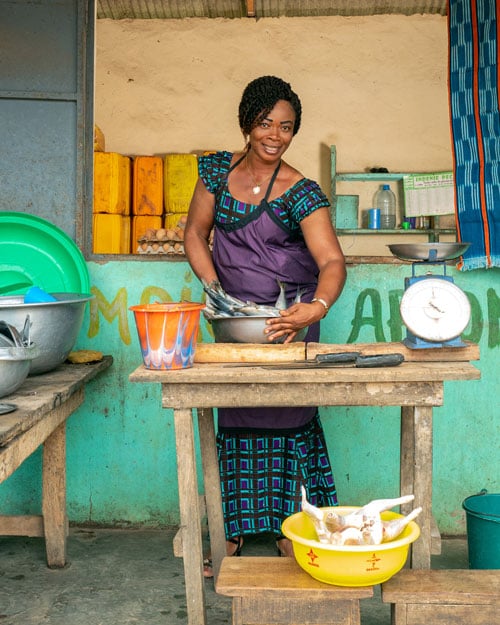
When she needed a new way to provide for her family, Cargill helped her open a business
Marie Adjehi Nanou Bla and her husband were looking for solutions. Her husband was a cocoa buyer in Côte d'Ivoire whose business had gone bankrupt. And they had to figure out how to feed their four children, pay for school fees and cover other household expenses.
So, with Cargill’s help, Marie started her own business — selling frozen fish and chicken, eggs and gasoline. To do it, she accessed a Cargill and CARE-supported program called Village Savings and Loan Associations that has helped more than 11,000 women entrepreneurs save money and get loans to generate income for their families. It’s part of a broader effort to empower women farmers economically in cocoa-growing communities.
“I am completely financially independent and I am the one who provides for all my family’s expenses,” Marie says.
Learn more about Marie’s story and Cargill’s partnerships to empower women cocoa farmers.
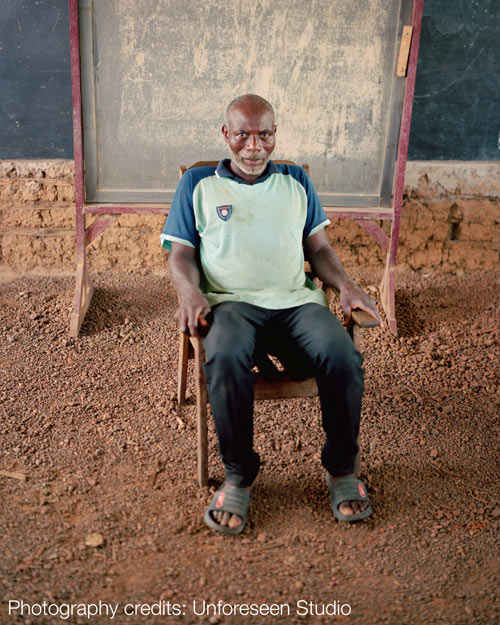
For this cocoa grower, trees are ‘our common heritage.’ That’s why he’s partnering to protect them in Côte d’Ivoire.
When Ouatara Shaka sees someone destroying trees, it breaks his heart.
Ouatara moved to the Bossoha region of Côte d’Ivoire nearly 35 years ago for a better life for his family. As a cocoa grower, he understands the pressures that might lead farmers to convert forests to farmland.
To combat this, Cargill and PUR Projet are promoting agroforestry — which includes helping reforest areas while also supplementing cocoa farmers’ incomes — in the Bossoha region. Since 2017, more than 1.2 million trees have been planted and we’ve helped more than 21,000 farmers adopt agroforestry practices.
“I am replanting trees for my children, to keep living from cocoa and provide a livelihood for my family,” Ouatara says. “Trees are our common heritage, that’s why we must take care of them.”
Learn more about Ouatara’s story and Cargill’s agroforestry partnership with PUR Projet.
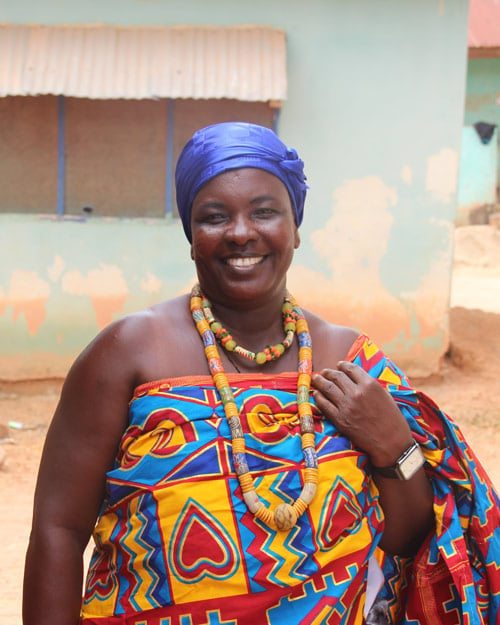
Through community training, she became a fierce advocate for women and youth in her Ghana village
Today, the Kojokrom village chief and elders call her “Nketasia Hemaa.”
It means “queen of women and youth.”
Mavis Yeboah earned the nickname after she participated in the Prosper program, part of a partnership between Cargill and global humanitarian organization CARE to raise up leaders to advocate for their community’s well-being. She still represents more than 500 women on a community development committee in this Ghanaian village where critical decisions are made. And she serves as president of the community women’s group — inspiring and encouraging women and girls to get involved in their neighborhoods.
“The project’s interventions are helping women and the community at large to appreciate the significance of women’s voice in decision-making,” Mavis says.
This is one of more than 2,500 community projects Cargill has helped launch in cocoa-growing areas. We also have deployed more than 600 community action plans with an increased focus on health, nutrition and gender equality. Learn more about how Cargill and its partners are investing in farming families to create more resilient cocoa farming communities.
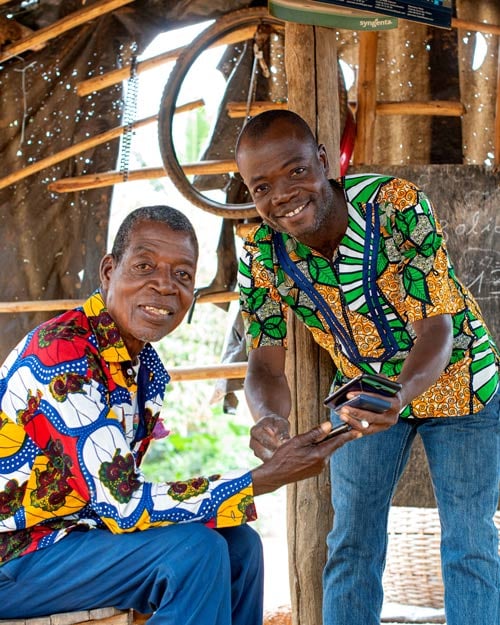
To protect their interests, he teaches fellow farmers about ‘mobile money’
Across his planters’ camp in Côte d’Ivoire, Edouard Kouakou Kouakou is spreading the word about “mobile money.”
This digital banking system has many benefits for cocoa farmers like Edouard, he says. It’s a secure way to send and receive money. It promotes savings. It replaces long trips to the local cooperative to get paid. And it helps farmers avoid becoming “easy targets of robberies or dishonest people,” Edouard says.
“There is also a certain pride in receiving your money on your mobile,” Edouard says. “… This money is the fruit of our commitment to the cocoa sector.”
That’s why Cargill is helping more farmers enroll in digital banking systems. More than 56,000 farmers in Cargill’s cocoa supply chain were enrolled in a mobile banking system in 2021 and more than 26,000 farmers are paid premiums through mobile money.
It’s part of a larger Cargill initiative to increase physical and financial traceability across our supply chain — including giving consumers the opportunity to trace cocoa back to different levels of our supply chain. Learn more about how we’re increasing transparency.
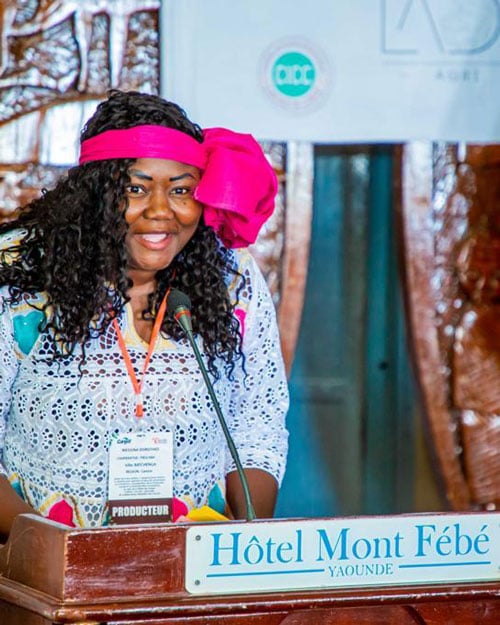
Agribusiness skills helped her become ‘more visible and valued’ in her community
Dorothée Messina is a farmer in a cocoa community in central Cameroon who supports a household of 11. She’s also one of more than 1,500 women who learned agribusiness skills — from safe food practices to social entrepreneurship — through a Cargill partnership with LadyAgri. The goal: higher quality produce and increased access to markets.
Today, Dorothée represents those same women as a leader of a local farming cooperative.
“We are the heart of the Cameroon food system,” Dorothée says. “LadyAgri and Cargill have helped us become more visible and valued in our communities.”
Cargill’s work with LadyAgri is just one example of how we’re using the power of partnerships — in the public and private sectors — to create a more sustainable cocoa supply chain. Recently, Cargill has entered into seven new partnerships across cocoa-growing communities and has more than 63 total — from NGOs and governments to social enterprises and financial institutions. Why? To create more opportunities for people across cocoa communities, to build sustainable local agri-food businesses and to diversify farmers’ income.
Learn more about how Cargill is expanding our partnerships to accelerate change.
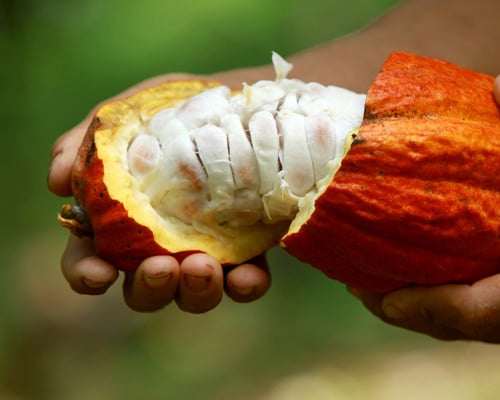
Can environmental recovery and sustainable cocoa production happen at the same time? Cargill is present on this journey.
"The sum of sustainable practices, traceability and commercial relevance makes cocoa the flagship of many agroforestry systems, since it is responsible for maintaining humidity in the forest soil and fertilizing it, as well as protecting it and mitigating erosion risks," says Raphael Hamawaki, CASC SA's Sustainability Projects coordinator.
Cargill is committed to restoring 100,000 hectares of degraded areas in Brazil. Part of the target is in the process of being met with this initiative, which encourages the development of cocoa farming and restores part of the Amazon biome.
Find out about the Cargill project in partnership with Belterra, which will restore green areas in the Brazilian Midwest over the next five years and boost the regional cocoa market.
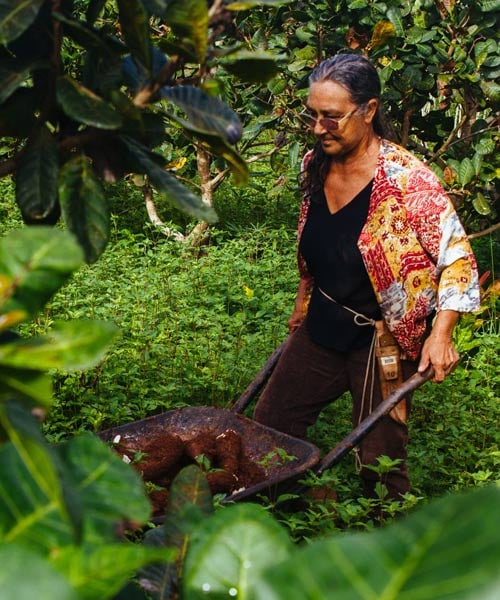
Empowerment and sustainability in the same project? Yes, we support such an initiative in Northern Brazil
“We thought we weren't qualified, but we showed that we are capable, and we can set up our own business”, that's how Maria Josefa Machado Neves defined the evolution of the Association of Women Fruit Pulp Producers (AMPPF, Associação das Mulheres Produtoras de Polpa de Fruta, in Portuguese), organization of which she is president.
Maria is part of a group of 50 entrepreneur women in Pará state, in the North region of Brazil and, when faced with socioeconomic problems, they sought alternatives and rely on subsidies that help to strengthen the agroindustry of cocoa derivatives.
Get to know the ‘Mulheres do Xingu’ Project which, supported by Cargill and the Imaflora Institute, assists in the socioeconomic development of entrepreneur women in the sector of fruit-made products.
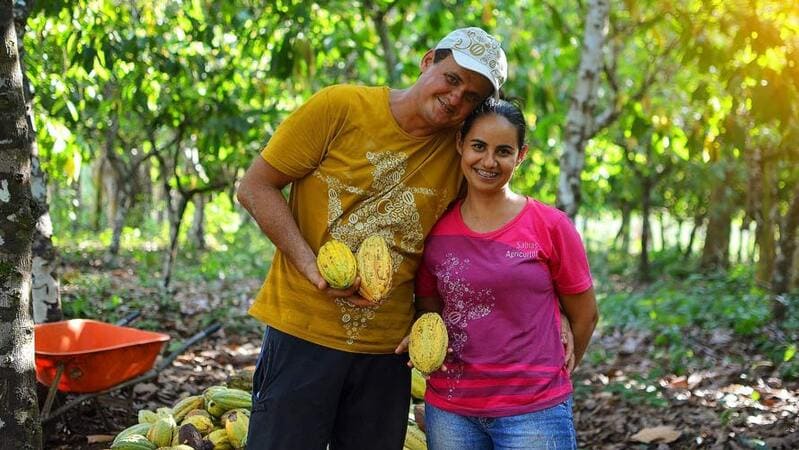 ‘If you want to go far, go together’: 10 ways this African proverb sums up a decade of progress for cocoa communities
‘If you want to go far, go together’: 10 ways this African proverb sums up a decade of progress for cocoa communities
Cargill’s global sustainability director for our cocoa and chocolate business reflects on 10 years of the Cargill Cocoa Promise — and shares why you should believe in the power of collective progress. Learn more.
If not mentioned elsewise, all West Africa photos in relation to sustainability are by Sandrine Bénitah « @Sandrine Bénitah »

